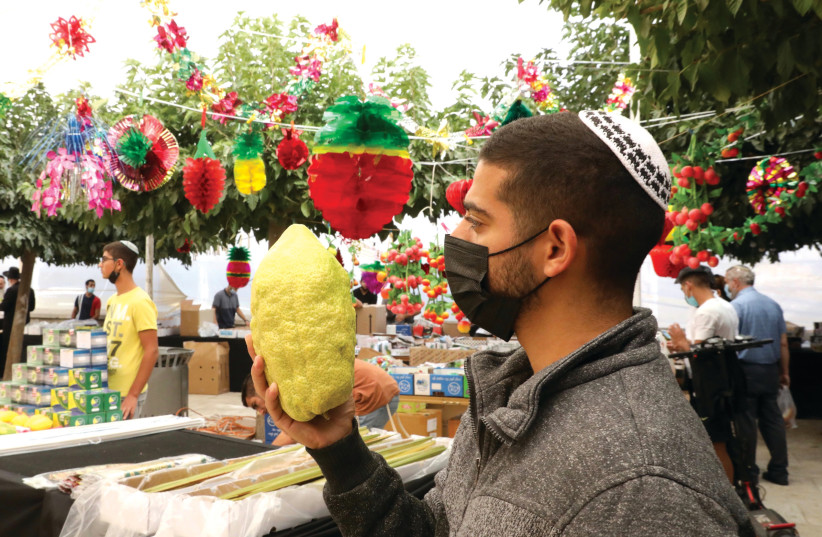The founder and owner of “Etrog Man,” the popular juice store in the Mahaneh Yehuda market, passed away on Tuesday at the age of 80.
Born in Yemen in 1942, Uzi-Eli Hezi arrived in Israel as part of the Operation Magic Carpet airlift in 1950. Hezi elaborated about his background in a video for Israel21c.
“My grandfather, my parents, [now] I’m the third generation doing medicine health from nature.”
Having decided to continue his family’s tradition of making nature-based medicinal products, Hezi traveled around the world in his younger years, working in greenhouses and learning about various farming practices. The knowledge he gained helped him manage a 10-acre field of etrogim, known in English as citrons, 25 km. outside of Jerusalem.
The citron’s healing powers
Hezi’s citrons were of a special Yemenite type, much larger and greener than the standard variety. Despite making a career out of juicing these fruits, his citrons contained only a small quantity of juice in comparison to others.

Soap, shampoo and sprays for the skin and tongue were among the products made from citrons that Hezi sold in addition to juices. Like Maimonides, from whom he claimed to be a direct descendant, Hezi believed in the citron’s medicinal properties.
Hezi would touch a person’s hand and prescribe one of his products for them according to his diagnosis, as he demonstrated for Israel 21c. “I’m a very small bird in the world,” he said, “but I try to give people who come to me the best way to become happy.”
Starting small
Humble beginnings paved the way to the Etrog Man store that Hezi’s children operate today.
“He used to go around the streets of the shuk with just a bag to sell [his products],” said Chaim, a vegetable salesman who enjoyed a 25-year friendship with Hezi. “I brought him here to the store, and things progressed slowly.”
Often referring to his customers as patients, Hezi was a frequent user of his own medicines.
“The etrogim keep me healthy and happy. I haven’t seen a doctor in 15 years. I pay for health insurance for nothing,” he told The Jerusalem Post in 2010. Hezi also helped hundreds of people with their own health, sharing stories about helping infertile women whom he helped to give birth and ridding people of depression.
Those who knew him remembered Hezi fondly. “He was a good man. Righteous and nice. It is a shame that he has left us,” Chaim said.
Yossi Avrahami, the owner of a business just up the road from Hezi’s store, also remembered him positively.
“He was an upright man. He was a wonderful Yemenite,” Avrahami reflected. “He was kind to people and never caused anybody trouble. From the day I met him, I only heard good things about him.”
Even people who did not know Hezi directly had only good things to share about him.
“I just knew him from advertisements and the like. But I heard he was a good man from everyone who spoke about him,” Arieli, a young worker at a restaurant in the shuk said. “[The Hezi family] should have only happiness and things should only be good by them.”
It is fitting that a customer described Hezi’s store to Israel 21c as “the Garden of Eden.” Hezi’s longtime friend Chaim concluded his thoughts on his friend’s passing with a wish that “his soul should be in the Garden of Eden.”
